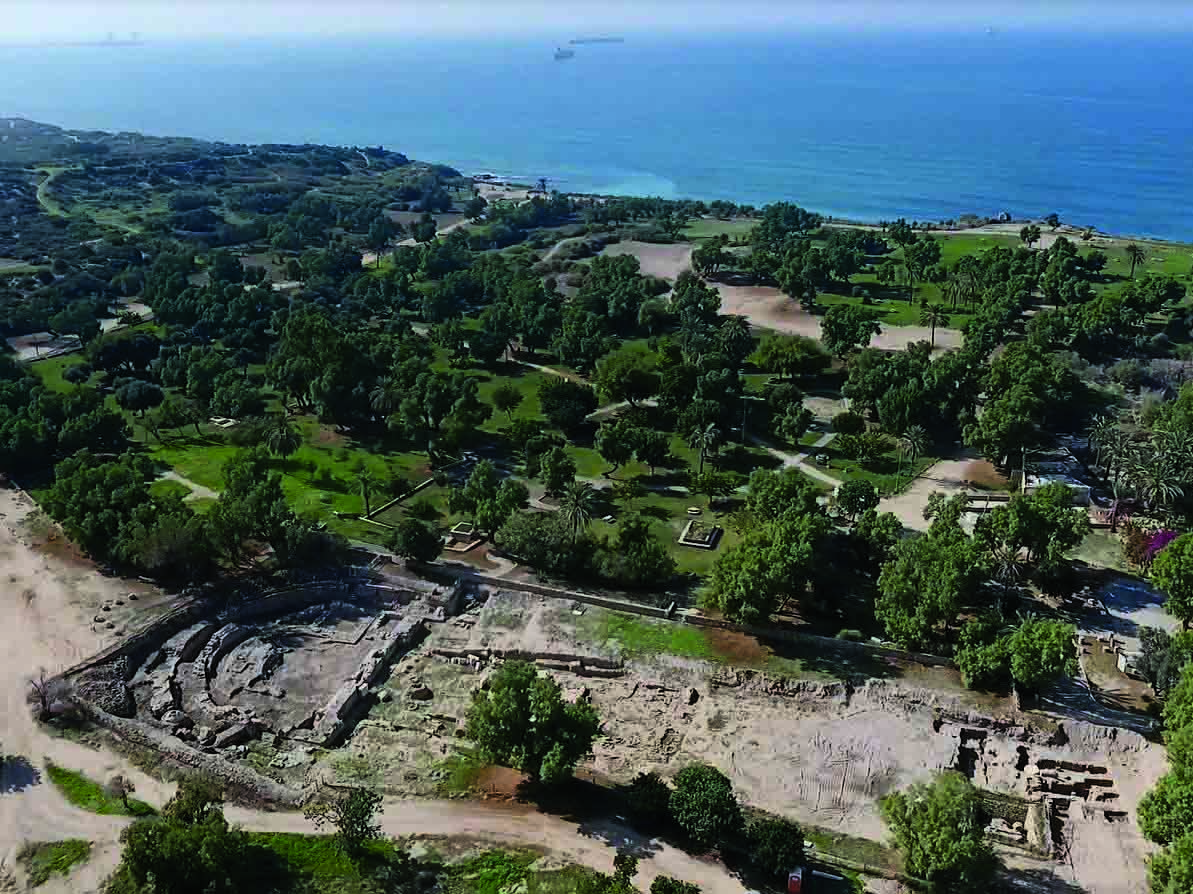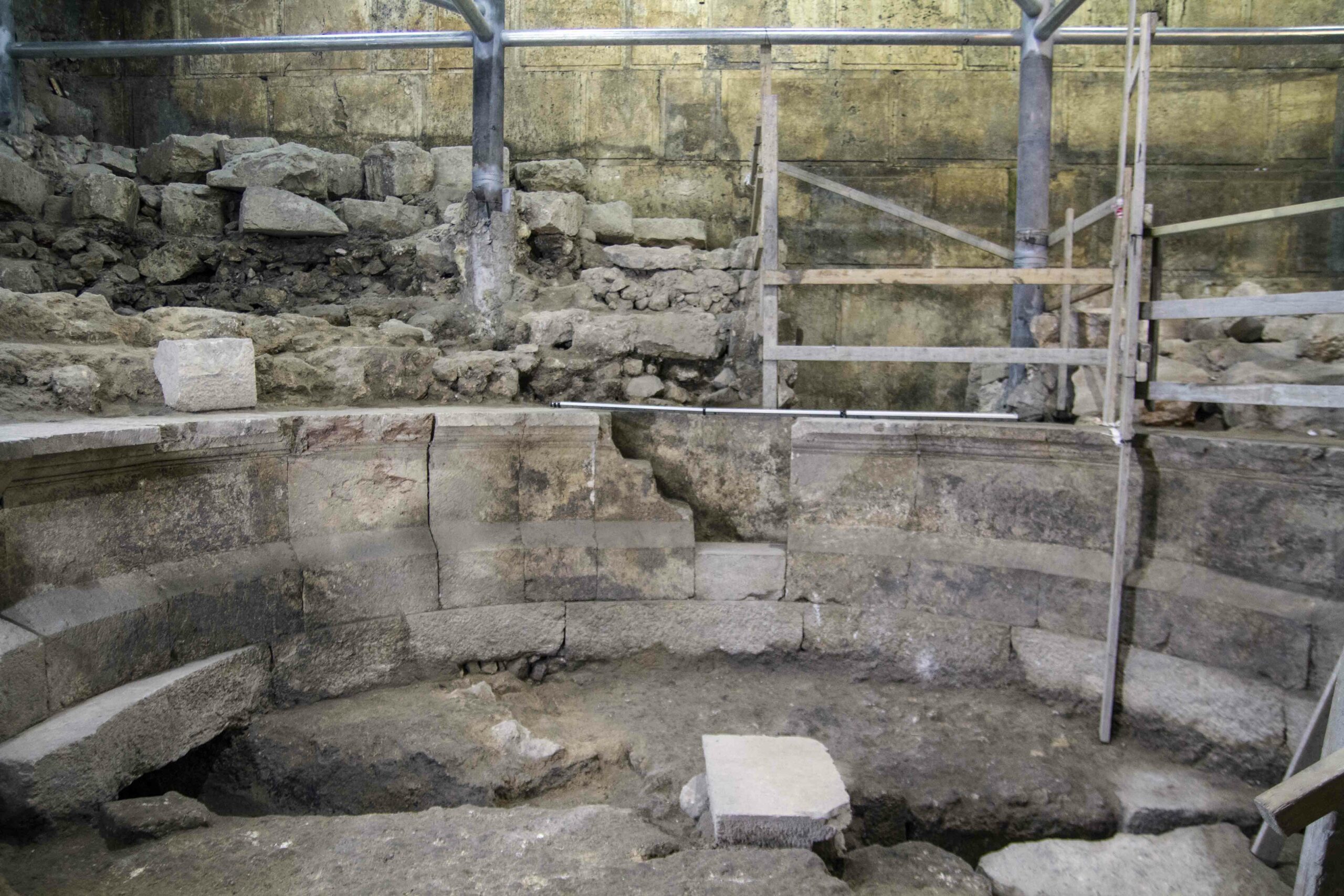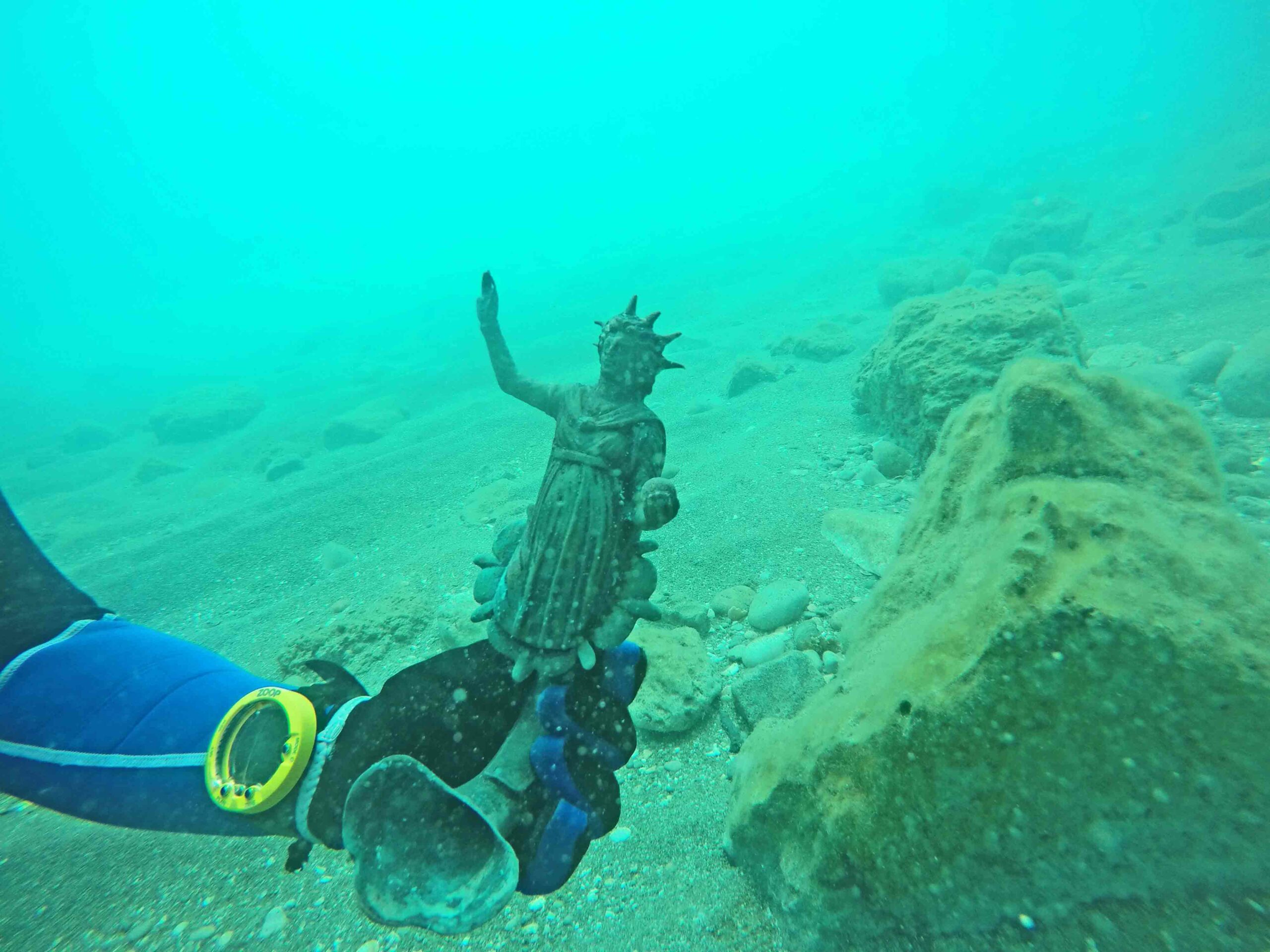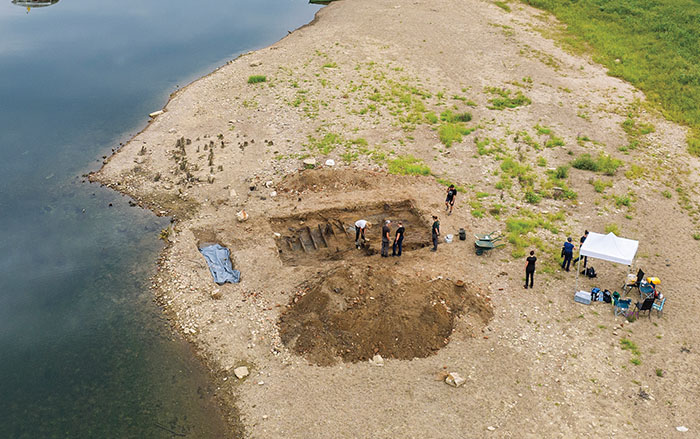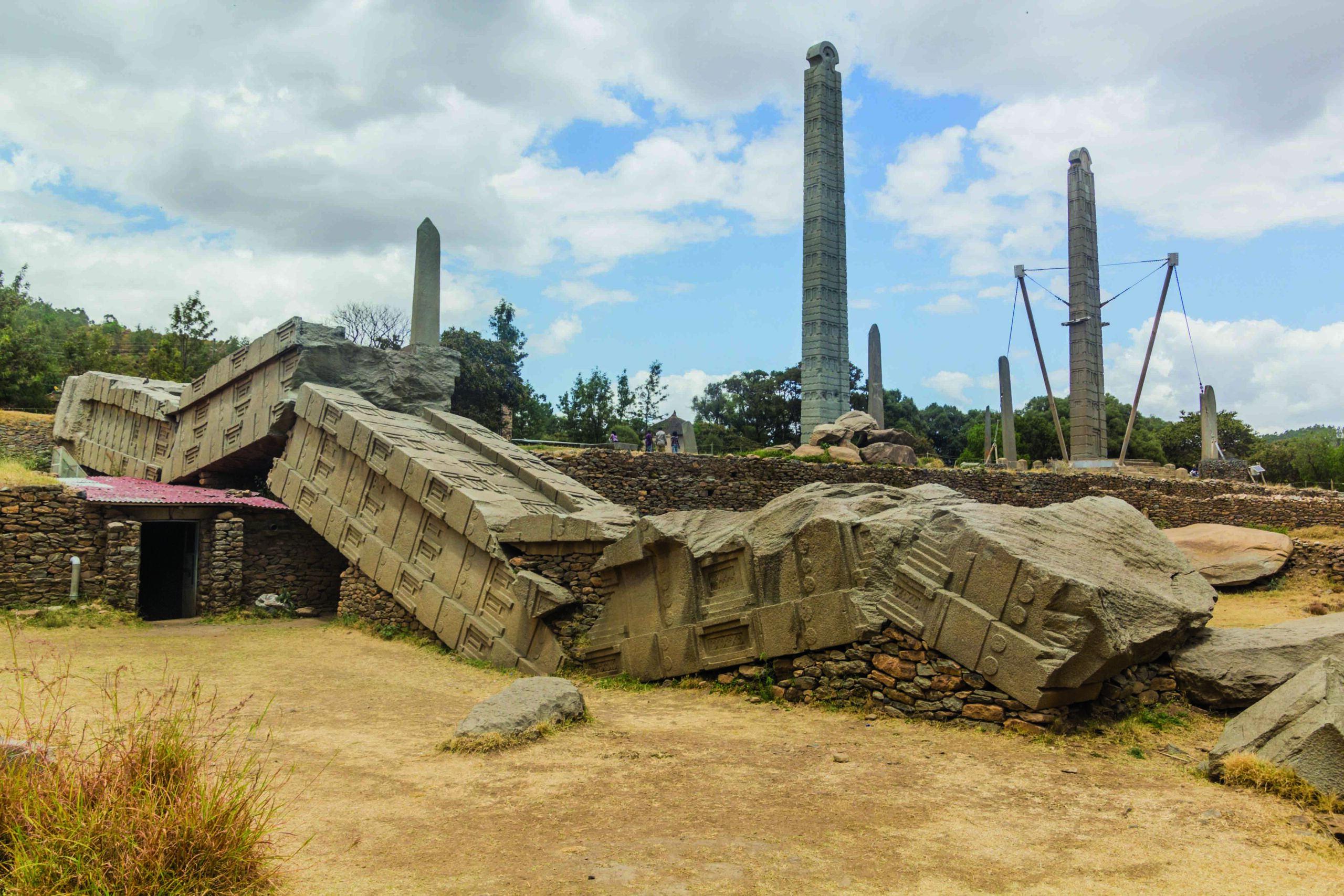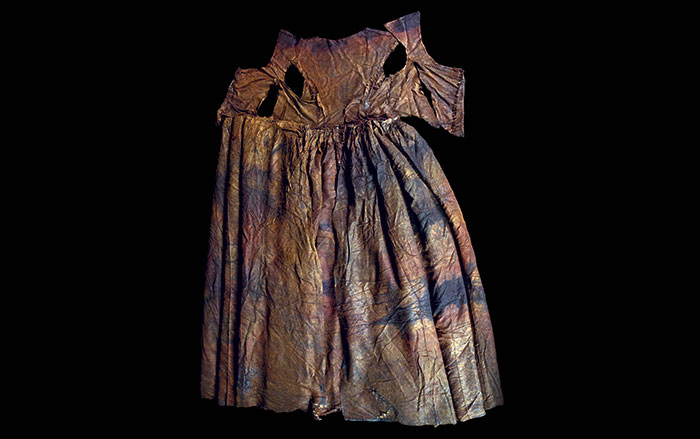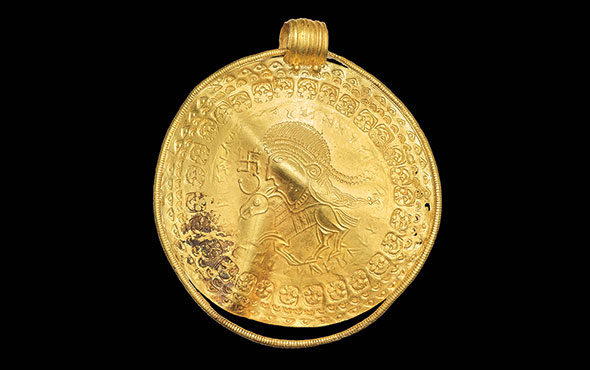
JERUSALEM, ISRAEL—BBC News reports that a project to photograph an inscription on a stalactite in a cave overlooking the Dead Sea has led to the discovery of three Roman long swords, or spatha, and one shorter ring-pommel sword. Asaf Gayer of Ariel University first spotted a Roman pilum, or javelin, in a crevice in an upper level of the cave, and then a bit of a wooden scabbard in a nearby niche. The research team returned with additional specialists to survey all of the crevices in the cave, leading to the discovery of the artifacts. The well-preserved 1,900-year-old weapons, thought to have been taken from the Roman army as booty by Judean rebels, were still in their wooden scabbards. “We are just beginning the research on the cave and the weapon cache discovered in it, aiming to try to find out who owned the swords, and where, when, and by whom they were manufactured,” said Eitan Klein of the Judean Desert Survey Project. To read about marble building materials that were recently recovered from a shipwreck off Israel's ancient Roman port of Caesarea, go to "Sunken Cargo."


